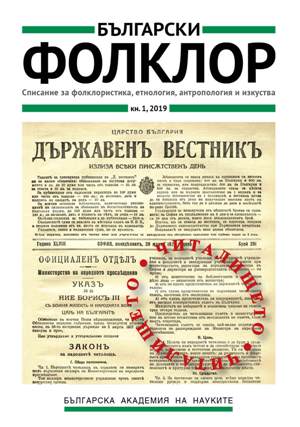Читалищата като част от развитието на гражданския сектор в България в периода от 1878 г. до 1944 г.
Chitalishta as Part of the Development of the Civil Society in Bulgaria in the Period from 1878 to 1944
Author(s): Silvena BayrakovaSubject(s): Politics / Political Sciences, Politics, History, Anthropology, Social Sciences, Law, Constitution, Jurisprudence, Civil Society, Public Law, Sociology, Political history, Social history, Modern Age, Recent History (1900 till today), Developing nations, Cultural Anthropology / Ethnology, Culture and social structure , Social development, Sociology of Culture, 19th Century, Identity of Collectives
Published by: Институт за етнология и фолклористика с Етнографски музей при БАН
Keywords: chitalishta (Bulgarian cultural community centers); civil society; public organization; state institution; cultural policy; intellectual elite
Summary/Abstract: In order to analyse in depth, the process of the present special status of the Bulgarian chitalishta, a look at the past is required to search for historical threads that lead to the reconciliation between their functions as state institutions from the one hand and civic organization ones from the other hand. The article highlights some features of the development of the Bulgarian civil sector and focuses on the chitalishta as the first civic organization with traditions dating back to the Bulgarian nation building period. Two major events in the span between 1878 and 1944 have an impact on the contemporary government policy concerning the Bulgarian chitalishta. Firstly, their consolidation in union in 1911 is initiated by the will of their leaders to coordinate the activities and to form high representation raising the organizational status. Secondly, due to the longstanding efforts of the chitalishte intelligentsia, the first Law to regulate them is passed in 1927, which strongly favours their financial and infrastructural support. This text intends to reveal how the democratic civic associations that have occurred in the context of non-existent national state during the Bulgarian “modernity”, acquire specific social and government-institutional hue that brings forth the prototype of their public duties and functions as a space for civil debate.
Journal: Български фолклор
- Issue Year: XLV/2019
- Issue No: 1
- Page Range: 015-031
- Page Count: 17
- Language: Bulgarian
- Content File-PDF

